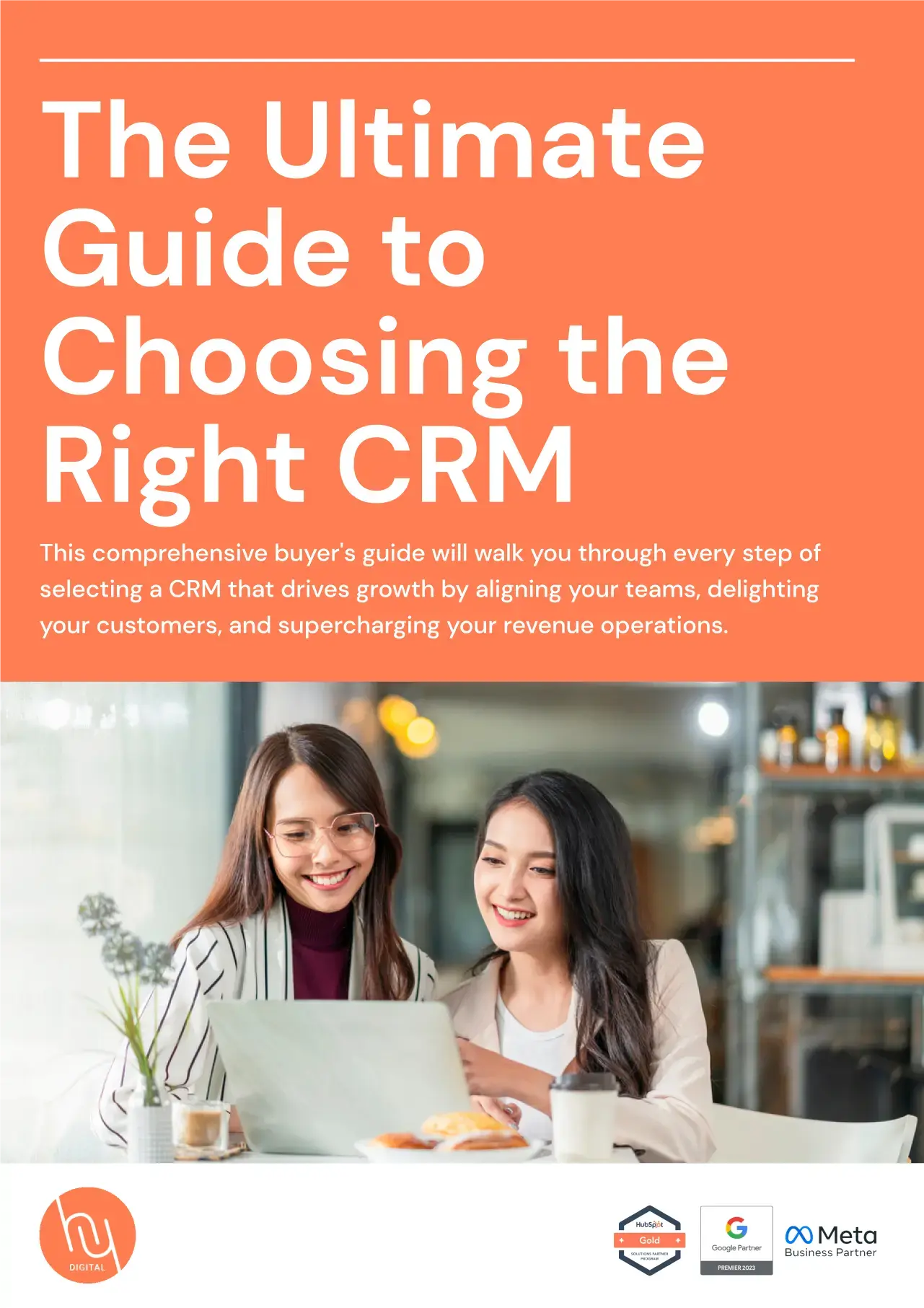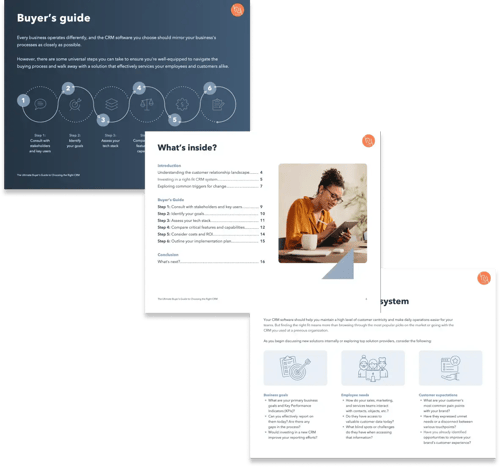The Ultimate Guide to Choosing the Right CRM
This comprehensive buyer's guide will walk you through every step of selecting a CRM that drives growth by aligning your teams, delighting your customers, and supercharging your revenue operations.


Inside this CRM Buying Guide
- Understanding the modern customer relationship landscape
- Signs it's time to invest in a new CRM system
- A 6-step framework for evaluating and choosing CRM software
- Tips for getting stakeholder buy-in and managing implementation
Need clarification?
What is a CRM?
A CRM (Customer Relationship Management) system is a software platform that allows businesses to manage all customer and prospect data, interactions, and experiences in one centralized location.
It provides visibility into the entire customer journey.
Why do I need a new CRM?
There are several potential triggers for needing a new CRM, such as operating across multiple disconnected data sources, having siloed sales/marketing/service teams, relying on manual reporting processes, or consistently experiencing gaps in customer data.
What CRM features are most important?
Some critical CRM features to look for include robust reporting/dashboards, data quality management tools, integration capabilities, custom object tracking, and access to implementation/training support.
The guide covers these in more detail.
How much does a CRM cost?
CRM costs can vary significantly based on the vendor, the features/number of users, implementation requirements, and other factors.
The buyer's guide provides tips on evaluating pricing and long-term ROI.
How long does a CRM implementation take?
Implementation timelines depend on the size/complexity of your business, but can generally take 2-6 months on average. Having a structured implementation plan and getting buy-in from stakeholders upfront is crucial.